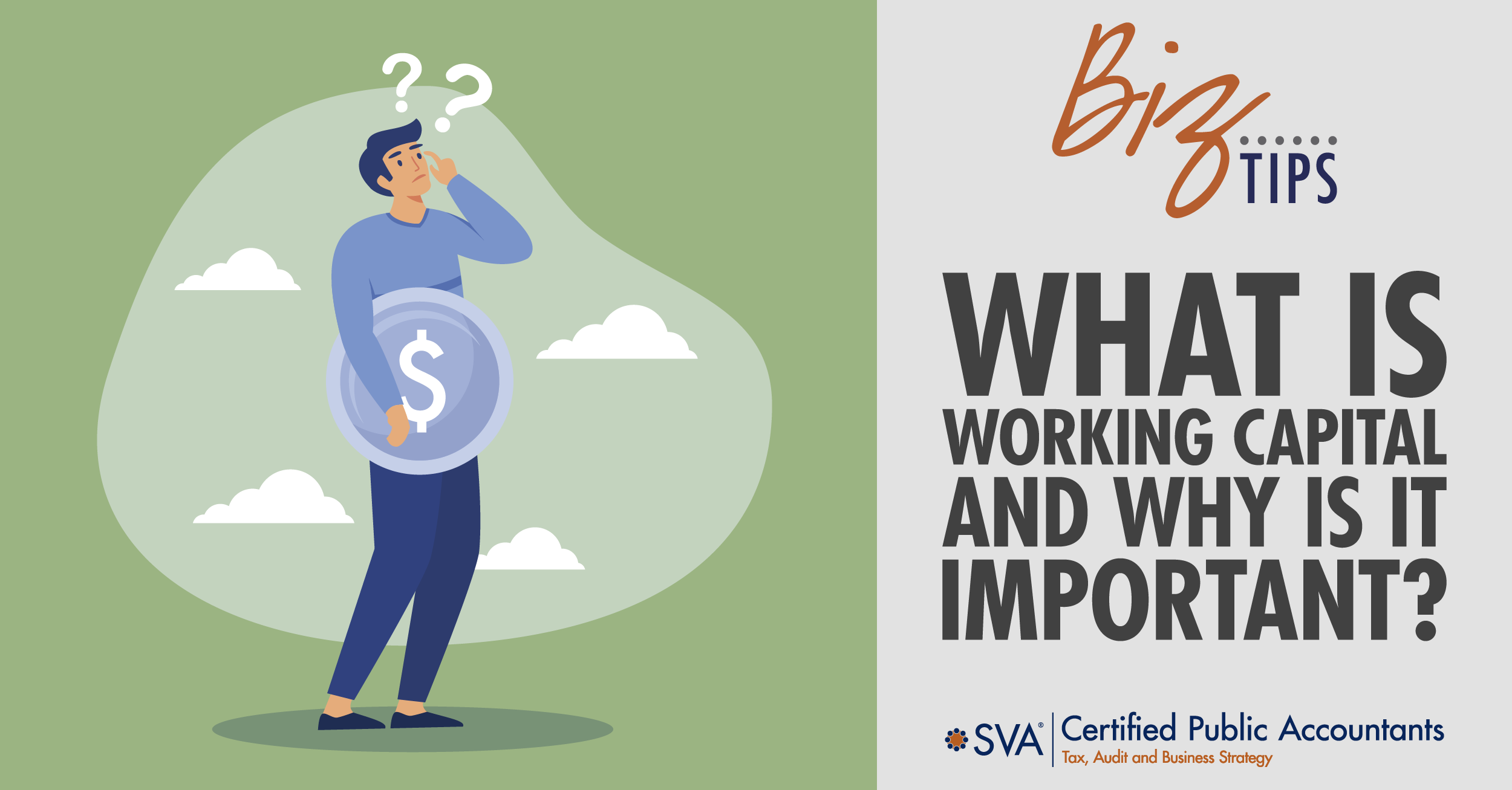| Highlights: |
- The article defines working capital as the difference between current assets (like cash, receivables, inventory) and current liabilities, reflecting short-term liquidity.
- It explains why working capital matters for financial stability, enabling a business to cover day-to-day expenses, fund growth, and respond to unexpected costs.
- The post discusses key uses—such as paying operating costs, purchasing inventory, and managing cash flow—and why monitoring metrics like the working capital ratio helps guide decisions.
|
Working capital is a key measure of a company’s short-term financial health—it's the cash available to cover everyday expenses and power operations.
This critical buffer ensures businesses can meet immediate obligations, maintain stability, and pursue growth without relying solely on external financing.
Monitoring metrics like the working capital ratio and cash conversion cycle helps companies fine-tune liquidity management and make smarter decisions that support sustained success.
What is Working Capital?
Working capital represents the difference between current assets (cash, accounts receivable, and inventory) and current liabilities (accounts payable and short-term debt).
Basically, it is the amount of cash a business has available to cover its day-to-day expenses.
(Download Video Transcript)
Analyzing Working Capital
There are a variety of tools businesses can use to analyze their working capital.
One of the most common is the working capital ratio, which is calculated using the following formula:
| Working Capital Ratio = Current Assets / Current Liabilities |
A ratio of one or higher indicates that the company has enough current assets to cover its current liabilities, while a ratio below one indicates a potential liquidity problem.
Another important metric is the cash conversion cycle, which measures the amount of time it takes for a business to convert its investments in inventory and accounts receivable into cash. This metric can help identify areas where businesses may be tying up too much capital and assist in developing strategies to improve cash flow.
Examples of Assets
| Cash |
Prepaid Expenses |
Investments |
| Accounts Receivable |
Property |
Inventory |
| |
Equipment/Vehicles |
|
Examples of Liabilities
| Accounts Payable |
Taxes |
Notes Payable |
| Loans/Other Borrowings |
Accrued Expenses |
Contingent Liabilities |
| Salaries/Wages Payable |
|
Deferred Revenue |
Benefits of Working Capital for Businesses
Financial Stability
Having sufficient working capital can help a business maintain financial stability, especially during times of economic uncertainty or unexpected expenses. This allows the business to cover its operational expenses without having to rely on external funding sources.
Improved Cash Flow
Working capital provides a cushion for a business's cash flow, which can be used to fund growth and expansion initiatives or to invest in new equipment or technology. This can help businesses take advantage of opportunities and stay competitive in their industry.
Increased Flexibility
Having adequate working capital can provide businesses with more flexibility in their financial planning. It allows businesses to weather financial setbacks, make strategic investments, and take advantage of unexpected opportunities.
Better Supplier Relationships
Businesses with strong working capital are often seen as more stable and reliable partners by their suppliers. This can help businesses negotiate better terms and prices for raw materials, inventory, and other supplies.
Reduced Borrowing Costs
A business with sufficient working capital may be able to avoid taking out loans or lines of credit to cover short-term expenses. This can help reduce borrowing costs and interest payments, which can ultimately increase profits.
What is Working Capital Used For?
Working capital is used for a variety of purposes in business, as it represents the company's ability to meet its short-term obligations and fund its day-to-day operations.
Here are some of the common uses of working capital in business:
Paying Operating Expenses
Used to pay for a company's operating expenses, such as rent, utilities, salaries and wages, and other overhead costs.
Purchasing Inventory
Used to purchase inventory and raw materials needed for production, so that a company can fulfill customer orders and maintain optimal inventory levels.
Financing Accounts Receivable
Used to finance accounts receivable, which represent the amount of money owed to a company by its customers for goods or services provided.
Managing Cash Flow
Used to manage cash flow, which is critical for a company's short-term liquidity and long-term financial health.
Investing in Growth Opportunities
Used to invest in growth opportunities, such as expanding the business, launching new products or services, or investing in new markets.
Working capital is essential for a company's day-to-day operations and long-term success. By effectively managing working capital, businesses can ensure that they have the resources necessary to meet their short-term obligations and pursue growth opportunities, while also optimizing profitability and returns.
Work on Your Working Capital
As you can see, working capital is vital to the success of a business. But simply having working capital is not enough. Take the time to understand:
- What working capital is
- How to analyze your working capital
- Benefits working capital provides to a business
- Ways to use working capital to strengthen your business
If you have questions on ways your company should use or calculate working capital, contact one of our accounting professionals.
© 2023 SVA Certified Public Accountants

